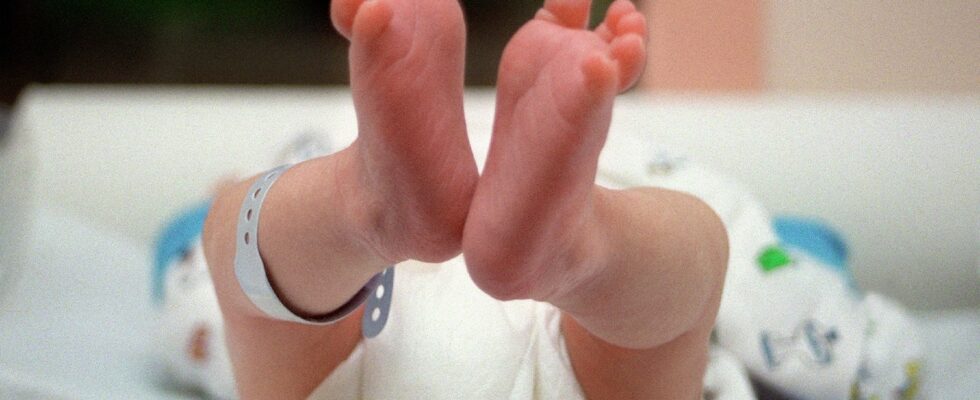Whooping cough continues its comeback. Since the beginning of 2024, France has seen “a sharp increase in the number of contaminations” by this infection and “at least 17 deaths, including 12 in infants aged 2 months and under”, warns the High Authority for Health (HAS) in a press release published this Monday, July 22.
And to better protect babies against the resurgence of this highly contagious viral disease, the HAS recommends that people in close contact with an infant receive an earlier booster vaccine, and calls on pregnant women to get vaccinated before leaving the maternity ward.
It is also necessary “not to delay the primary vaccination of infants as soon as they are old enough to be vaccinated, from 2 months – including if the mother was vaccinated during her pregnancy”, notes Anne-Laure Crémieux, member of the HAS technical vaccination committee.
Vaccine immunity fading
Thus, “any person in close contact with a newborn and/or infant under 6 months in a family or professional setting receives a booster, if their last whooping cough vaccine dates back more than 5 years”, explains the HAS, which warns against the reduction in the vaccine’s effectiveness over time. “Studies suggest that vaccine effectiveness would fade rapidly from 5 years after the last dose, becoming insufficient to guarantee protection against infection”, it explains.
Health and early childhood professionals are therefore concerned, as are those around the newborn: parents, siblings, grandparents, people in close contact, etc. This is unless the mother has been vaccinated at least one month before giving birth. Vaccination of pregnant women, from the second trimester of pregnancy and at the latest one month before giving birth, recommended since 2022 in France, remains “the most effective measure to protect the infant from birth thanks to the transplacental transfer of antibodies”, underlines the HAS, in unison with the specialists.
Given the number of deaths “already higher than that observed in France during the last epidemic peak in 2017 but also the current number in neighboring countries such as the United Kingdom”, “we must tighten the vaccination net to protect infants as effectively as possible”, assures Anne-Laure Crémieux to AFP.
Neutralize the most serious forms of the disease
It should be noted that the recommendations are primarily aimed at reducing the risk of severe whooping cough in newborns and infants, who are too young to be protected by their own vaccination – mandatory at 2 and 4 months, with a booster at 11 months. This is partly why “we see […] “dramatic forms of whooping cough with hospitalizations in intensive care, and sometimes fatal outcomes,” Philippe Sansonetti, professor emeritus at the Pasteur Institute and the Collège de France, deplored to AFP at the end of June.
However, vaccination against whooping cough is one of the mandatory infant vaccinations in France. In addition to boosters at age 6 and then between 11 and 13, another is currently planned at age 25, then at any age for adults planning to have children or in close contact with babies. The problem: those around them do not have enough recourse to “revaccination”. Thus, in its press release, the HAS announced that it will propose, “in a second phase and outside of the emergency situation, an update of the whooping cough vaccination strategy in light of the new data available”.
